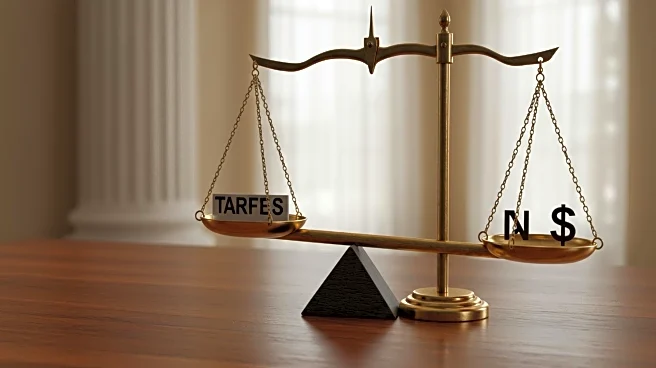What is the story about?
What's Happening?
Chicago Federal Reserve President Austan Goolsbee has expressed concerns about the potential impact of tariffs on inflation, which could influence the Federal Reserve's decision on interest rates. Speaking at the Greater Springfield Chamber of Commerce, Goolsbee highlighted the challenge of determining whether tariffs will cause a temporary or persistent increase in inflation. This assessment is crucial for deciding when to adjust interest rates. The Fed recently maintained its benchmark overnight interest rate at 4.25%-4.50%, despite dissent from Fed Vice Chair of Supervision Michelle Bowman and Fed Governor Christopher Waller, who advocated for rate cuts due to perceived labor market weaknesses. The U.S. Labor Department's revised job growth estimates for May and June, along with a smaller-than-expected job gain in July, have intensified discussions on rate cuts, supported by President Trump and Treasury Secretary Scott Bessent.
Why It's Important?
The Federal Reserve's decision on interest rates is pivotal for the U.S. economy, affecting borrowing costs, consumer spending, and business investments. Tariffs, if they lead to sustained inflation, could necessitate a delay in rate cuts, impacting economic growth. The labor market's health, as indicated by job growth and unemployment rates, is a critical factor in these deliberations. A strong labor market supports economic stability, while signs of weakness could prompt rate cuts to stimulate growth. The Fed's approach to inflation and interest rates will influence financial markets and economic stakeholders, including businesses and consumers, who rely on predictable monetary policy for planning and investment.
What's Next?
The Federal Reserve will continue to monitor inflation data, including upcoming wholesale price and broader inflation reports, to assess the impact of tariffs. These findings will inform future rate decisions, with potential implications for economic policy and market stability. Stakeholders, including political leaders and financial institutions, will closely watch the Fed's actions, as they could affect economic forecasts and strategies. The Fed's ability to navigate these challenges will be crucial in maintaining economic momentum and addressing inflationary pressures.















